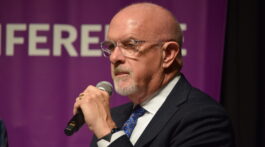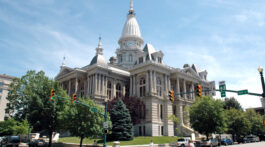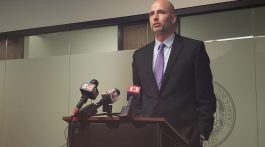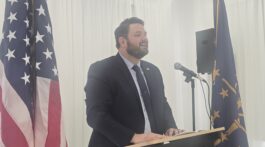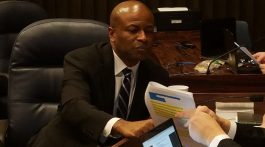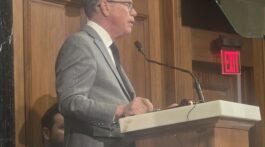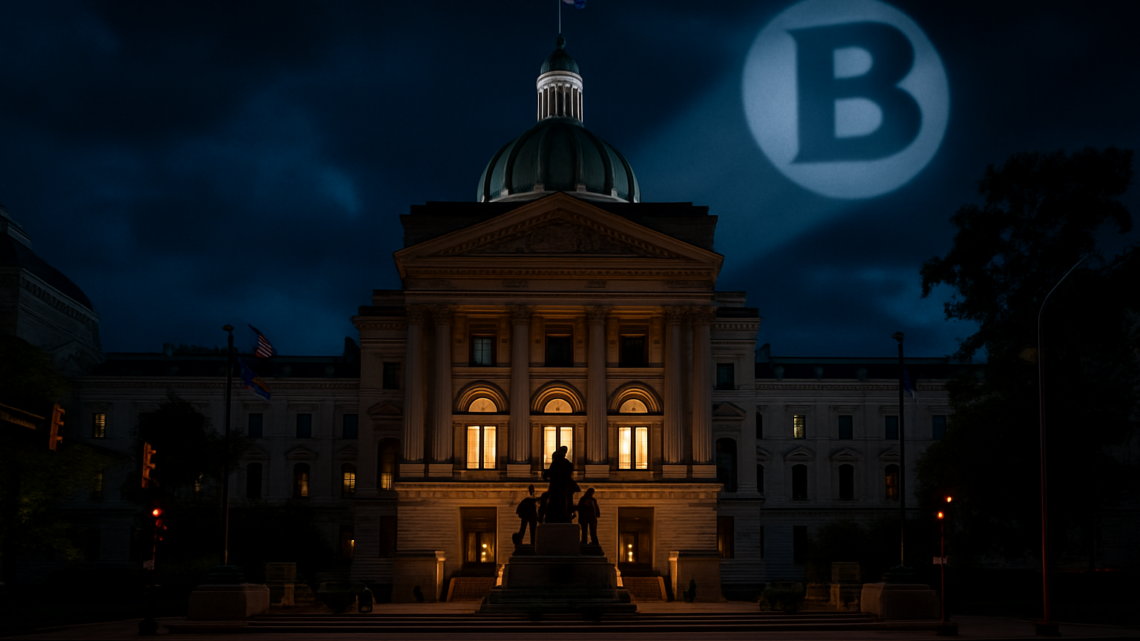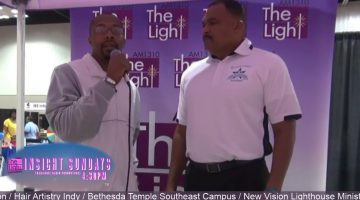by Abdul-Hakim Shabazz
I’ve always been a Superman guy — truth, justice, and the occasional heat-vision glare when someone says something truly stupid. But even I can appreciate a solid Batman reference, because in Indiana politics the Bat-Signal is the perfect analogy for a governor’s special-session call: you shine the light, and the heroes (or at least the people who play them on Organization Day) are supposed to show up.
At least, that’s how it’s supposed to work.
So when Gov. Mike Braun fired up the Bat-Signal with his special-session proclamation, the Indiana General Assembly did something even Gotham’s criminals wouldn’t dare: they ignored it. Completely. Like Gotham’s finest looking up at the sky and saying, “Yeah, no — we’re staying in tonight.”
Let’s be clear: Indiana governors don’t call special sessions because they’re bored. It’s the political version of hosting Thanksgiving — the food gets cold, someone starts yelling, and you’re left wondering why you invited half these people in the first place. But Braun decided congressional redistricting required immediate action, so he flipped the switch.
And for the first time in state history, lawmakers pretended nothing happened.
Technically, yes, the legislature came in for Organization Day. For about eleven minutes. They shook hands, took pictures, said the usual things about bipartisanship they absolutely did not mean — and then adjourned until January with the enthusiasm of kids racing toward winter break. The message was unmistakable: “Governor, your special session is cute. We, however, have brunch.”
Here’s where the plot thickens.
The Constitution is clear: the governor may “convene” the legislature by proclamation. What it does not say is that lawmakers have to stick around once they show up. Former Speaker Brian Bosma says you have to at least gavel into the special session. Bray’s interpretation seems to be: “If we glanced in the chamber, that counts.”
This isn’t constitutional interpretation.
This is political tai chi.
Braun wants the maps drawn now. National Republicans want the maps drawn now. And the Indiana Supreme Court just said in Holcomb v. Bray that only the governor can call a special session.
But here’s the part everyone keeps whispering: nowhere — not in the Constitution, not in statute, not in case law — does it say what happens when the legislature simply shrugs and goes home.
That’s the governing dead zone.
And the General Assembly just waltzed right into it.
And if you want a clue as to what leadership actually thinks, consider this: Speaker Todd Huston quietly kept the first two weeks of December wide open on the House calendar — because everyone in leadership knows Braun can still call a special session at any time, and December was their “just in case the governor actually means it” reserve window.
In other words: this isn’t about constitutional nuance.
This is about power — who has it, who wants it, and who’s willing to pretend the Bat-Signal is just a decorative lamp.
For more than two centuries, the governor’s special-session authority has operated on a simple Batman rule: shine the light, and they show up. Now the legislature is testing a new theory: “We saw your light, Governor. We respect your light. But we’re not coming out. It’s cold.”
And unless someone wants to litigate this — and risk creating a binding precedent neither branch actually wants — this little stunt might work.
But here’s the long-term problem: if lawmakers can blow off a governor once, they can do it again. And if special-session calls become as optional as reading the fiscal note before appropriating a billion dollars, Indiana will have quietly kneecapped the governor’s emergency authority.
So when Braun calls… must anyone answer?
Legally? Uncertain.
Politically? The legislature already gave its answer.
And based on their lightning-fast retreat on Organization Day, it was pretty clear:
The Bat-Signal went up… and everyone stayed at Wayne Manor.
Abdul-Hakim Shabazz is the editor and publisher of Indy Politics. He is also an attorney licensed in Indiana and Illinois.


